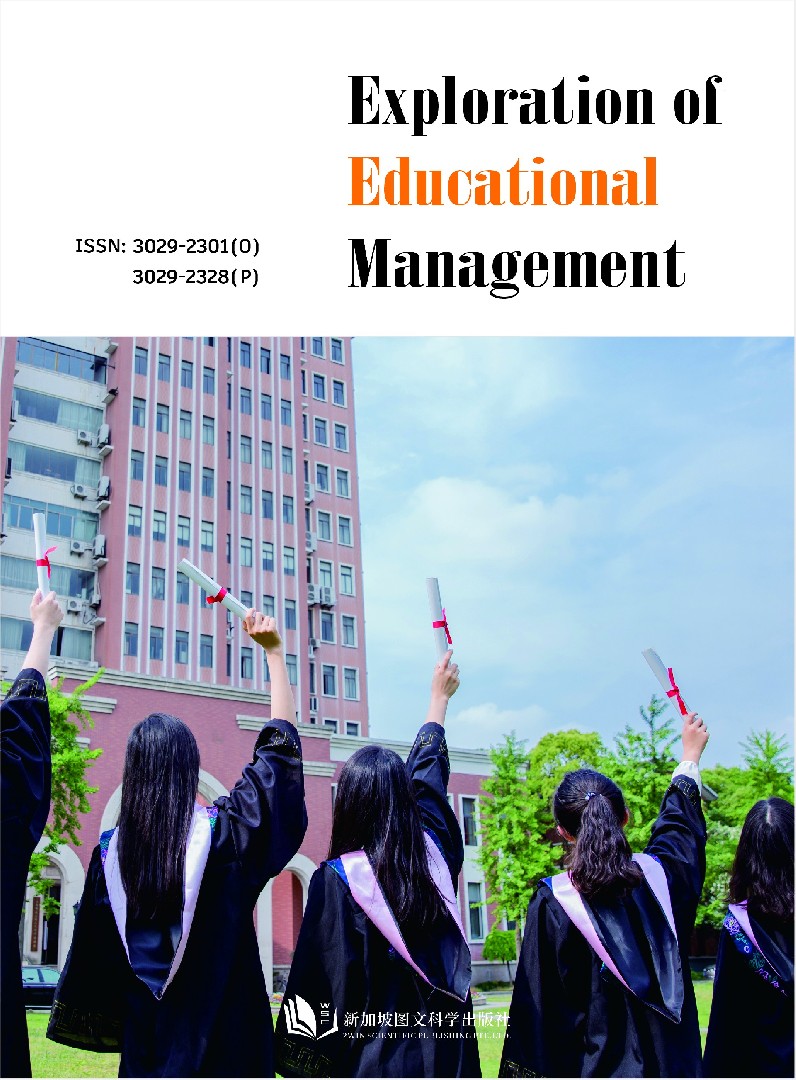作者
Rui Zhang
文章摘要
The advent of the digital age has promoted the transformation and development of the economy and society to digitalization, and put forward new requirements for teachers’ digital literacy. The level of teachers’ digital literacy affects the reform and innovation of teaching. Therefore, by combing the research literature on teachers’ digital literacy assessment in China and adopting the literature research method and content analysis method, this paper makes a systematic analysis from the aspects of publication time and quantity, basic theoretical system, evaluation tools and techniques, evaluation framework and indicators, and factors affecting evaluation. In order to provide reference for the transformation and development of education digitization in our country.
文章关键词
the era of digital intelligence; digital literacy; assessment; research status
参考文献
[1] The 14th Five-Year Plan for National Economic and Social Development of the People’s Republic of China and the Outline of the Vision Goals for 2035[M]. Beijing: People’s Publishing House,2021.46.
[2] The CPC Central Committee and The State Council. The CPC Central Committee and The State Council issued the Overall Layout Plan for Digital China Construction [EB/OL]. (2023-02-27) [2023-06-20]. http://www.gov.cn/xinwen/2023-02/27/content_5743484.html.
[3][10] Ministry of Education of the People’s Republic of China. Notice of the Ministry of Education on Issuing the “Digital Literacy of Teachers” Education Industry Standard [EB/OL]. (2022-12-02) [2023-06-20]. http://www.moe.gov.cn/srcsite/A16/s3342/202302/t20230214_1044634.html.
[4] Li Kedong. Research Methods of Educational Technology[M]. Beijing: Beijing Normal University Press,2003:228-247.
[5] Zhang Wenlan, Mou Zhijia. Research status and hot spots of fun learning[J]. Modern Educational Technology,2011,(6): 32-38.
[6] [11] [12] Xie Youru, Li Kedong. Basis of Research methods of Educational Technology[M]. Beijing: Higher Education Press,2006:241-284.
[7] Morgan, Kendra, Chesemore, et al. State Library Guidebook: Support for Digital Literacy in Public Libraries[J]. Journal of Documentation ,2013, 17(3):82-84.
[8] JISC. Developing Digital Literacies [EB/OL]. https://www.jisc.ac.uk/guides/developing-digital-literacies.
[9] United Nations Educational. Scientifc and Cultural Organization. UNESCO ICT competency framework for teachers[EB/OL].(2018-05-16)[2023-10-13]. https:/unesdoc.unesco.org/ark:/48223/pf0000213475.
[13] Gilster, P.. Digital Literacy[M]. New York: Wiley,1997:25-48.
[14] Ling Zhengqiang. Current situation, problems and Educational Path of college students' Digital Literacy in China[J]. Information Theory and Practice,2020,43(07):43-47+53.
[15] Wang Youmei, Yang Xiaolan, Hu Wei et al. From Digital Literacy to Digital competence: Conceptual evolution, Constitutive elements and integration model[J]. Journal of Distance Education, 2013, 31 (03): 24-29.
[16] Ma Xing, Feng Lei. The value, goal and Strategy of Digital Literacy Education for College students[J]. Jiangsu Higher Education,2021(11):118-124.
[17] Wu Gang, Li Yuting, Wang Haifu. Construction and prospect of digital literacy framework for university teachers [J]. Education and Teaching Research,2022,36(09):41-53.
[18] Kong Lingshuai, Wang Nannan. How to develop teachers' digital literacy: the path and inspiration of UNESCO[J]. China Distance Education, 2019,43(06):56-63.
[19] Ning Xiaoli. Research on Digital Literacy Training of primary and secondary School teachers in England[D]. Nanjing: Nanjing Normal University,2021.
[20] Zeng Guoquan et al. Training Digital Excellent Teachers: a school-based approach to Improving Digital Literacy of primary and secondary school teachers[J],2023(09):20-24.
[21] Liang Chen. Research on the construction of Physical education teachers' Digital Literacy evaluation index system under the background of education digitization[D]. Wuhan: Wuhan Institute of Physical Education, 2024.
Full Text:
DOI
